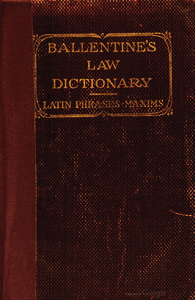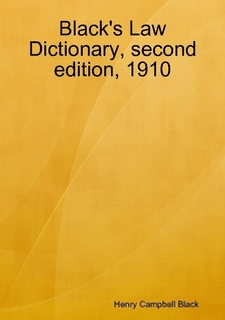The right of one man to pass over the land of another in some particular line. See 100 Am. Dec. 115, note.
Definition of Way
-
Ballentine's Law Dictionary
-
Black's Law Dictionary: 2nd Edition
A passage, path, road or street In a technical sense, a right of passage over land. A right of way is the privilege which an individual, or a particular description of persons, as the inhabitants of a village, or the owners or occupiers of certain farms, have of going over another's ground. It is an incorporeal hereditament of a real nature, entirely different from a public highway. Cruise, Dig. tit. 24, § 1. The term "way" is derived from the Saxon, and means a right of use for passengers. It may be private or public. By the term "right of way" is generally meant a private way, which is an incorporeal hereditament of that class of easements in which a particular person, or particular description of persons, have an interest and a right, though another person is the owner of the fee of the land in which it is claimed. Wild v. Deig, 48 Ind. 455, 13 Am. Rep. 399.
—Private way. A right which a person has of passing over the land of another. Jones v. Venable, 120 Ga. 1, 47 S. E. 549; Whiting . Dudley, 19 Wend. (N. Y.) 376; Kister v. Rees-er, 98 Pa. 1, 42 Am. Rep. 608; Kripp v. Curtis, 71 Cal. 62, 11 Pan. 879. In another sense (chiefly In New England) a private way ls one laid out by the local public authorities for the accommodation of individuals and wholly or chiefly at their expense, but not restricted to their exclusive use, being subject, like highways, to the public easement of passage. See Metcalf v. Bingham, 3 N. H. 459; Clark v. Boston, O. & M. R. Co., 24 N. II. 118; Denham v. Bristol County, 108 Mass. 202; Butchers', etc., Ass'n v. Boston, 139 Mass. 290, 30 N. E. 94
—Right of way. See that title.

